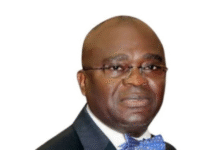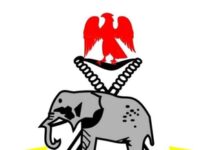By Mahmud Jega.
Kenneth David Kaunda lived a very long life. When he died on Thursday, June 17th at the very ripe age of 97, many young Africans who heard about his death rolled their eyes and asked, “Kenneth who?”
I won’t blame them too much. KK, as he was known throughout Africa, ceased to be the President of Zambia 30 years ago, so any African under 40 years of age did not know the time when KK walked the African stage, one of the true titans of our continent. His country is relatively small, but Kenneth Kaunda was an outsize figure on the African continent, far beyond the size, power or resources of his country.
He was the man who gave sanctuary in his country to Joshua Nkomo’s Zimbabwe Africa Peoples Union [ZAPU] and its armed wing, Zimbabwe Peoples Revolutionary Army [ZIPRA]. From Zambia, ZIPRA launched attacks against Ian Smith’s rebel Unilateral Declaration of Independence [UDI] regime in Rhodesia, what is now called Zimbabwe. Zambia and Zimbabwe were twins during the colonial era; the former was called Northern Rhodesia while the latter was called Southern Rhodesia. For hosting ZAPU, Kaunda and Zambia paid a high price in frequent aerial and bombing attacks by Rhodesian Defence Forces led by Lt General Peter Walls.
Undaunted, Kenneth Kaunda also gave South Africa’s exiled national liberation movement, Africa National Congress [ANC], sanctuary in his country. ANC’s headquarters was based in Lusaka, from where its armed wing, Umkhonto we Sizwe, waged relentless war against the apartheid regime. When Nelson Mandela was released from prison in January 1990, ANC released a list of countries he would visit “in order of their contribution to the liberation struggle.” Zambia was top of the list.
Kenneth Kaunda was President of Zambia from its independence from Britain in 1964 until 1991. In that golden era of African nationalism, patriotism, anti-colonialism and anti-apartheid struggle, he stood tall among the African greats.
Unlike Haile Selassie, Kaunda was no Emperor. Unlike Ghana’s Kwame Nkrumah, Mozambique’s Samora Machel or Angola’s Augustinho Neto, Kaunda was no Communist. Unlike Tanzania’s Julius Nyerere, KK was not a socialist. He had no history of military struggle, unlike Algeria’s Hoari Boumedienne, Guinea Bissau’s Amilcar Cabral or Namibia’s Sam Nujoma. He was not a soldier, unlike Libya’s Muammar Gaddafi, Ethiopia’s Mengistu Haile Mariam or Egypt’s Gamal Abdel Nasser.
KK was more to be likened with fathers of their nations such as Kenya’s Jomo Kenyatta [Kaunda was less flamboyant], Senegal’s Leopold Senghor [Kaunda was less poetically endowed], Kenyatta’s successor Daniel arap Moi [Kaunda was much less autocratic], Ivory Coast’s Felix Houphoet Boigny [Kaunda did not worship a former imperial power], or Malawi’s Hastings Kamuzu Banda, probably the only African leader who was more neo-colonial than Boigny. Apart from Zaire’s Mobutu Sese Seko, I am sorry.
Yet, no African Communist, no African soldier-turned-statesman and no African guerilla fighter ever exceeded Kenneth Kaunda in raw African patriotism, in total commitment to African liberation and in making huge sacrifices in pursuit of African liberation.
In 1977 when he came to Lagos for a conference in support of SWAPO [the Namibian national liberation movement led by Sam Nujoma], Kaunda broke down in tears in the middle of his speech. Head of State General Obasanjo and other African leaders all watched in silence as he wiped away tears with a handkerchief and struggled with emotion throughout his speech, as we saw on NTA.
Kenneth Kaunda was one of the first African leaders to be swept away by the gale of multiparty democracy that swept through sub-Saharan Africa in the early 1990s. His United National Independence Party [UNIP] was defeated in Zambia’s first multi-party elections by the labour union leader Frederick Chiluba. He turned out to be a disaster, but Kaunda never returned to power in Zambia. No need to, because he had already earned his place for eternity in the ranks of Africa’s greatest warriors and statesmen.
May his great soul rest in perfect peace.
Tribute published in 21st Century Chronicle Friday, June 18, 2021.






